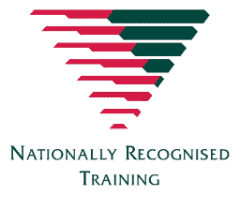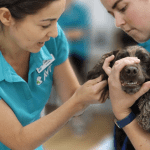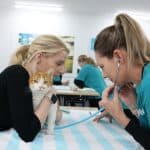Uncertain if your chosen course is nationally accredited in Australia? Verifying accreditation is a crucial first step when selecting a training program. This ensures you enrol in a program that meets rigorous industry standards, equipping you with the skills and knowledge to excel in your chosen field.
If you want to start a career caring for animals, including working in veterinary nursing, animal care or training, there are a few things you should know about choosing a suitable course.
Firstly, after a quick website search you will find there are two types of courses offered, accredited and non accredited.
A vocational education and training (or VET) accredited course has the following characteristics:

- Meets AQF standards – This stands for “Australian Qualifications Framework”. This is the national standard for training and education in Australia. It began in 1995 to create a baseline of quality that governs any qualification earned in the country related to schools, training programmes, higher education and so on.
- Contains a special code that can be found on the National Register – This is one way you can be sure that it has the quality that you need for your future career. e.g ACM40418 Certificate IV in Veterinary Nursing
- Has been developed by industry consultation – accredited courses reassure employers your skillset matches those required by industry – Accredited courses are designed specifically to meet the needs of industry ensuring all the relative laws and regulations are incorporated.
What is a Nationally Recognised Qualification?
Many institutions throughout Australia offer a range of courses in animal care. However, only a few courses are industry-recognised and also deemed a “Nationally Recognised Qualification.” These courses are regulated by the Australian Skills Quality Authority or ASQA (Australian Government).
What’s the difference between a Non-accredited and Accredited Course?
Courses that are non-accredited may still be useful for increasing your knowledge and skills, but they won’t help you receive an accreditation. A vocational education and training (VET) accredited course has been assessed by ASQA as compliant with the Standards for VET Accredited Courses 2021 and the Australian Qualification Framework (learn more). Courses that don’t have the VET designation and that haven’t been approved by ASQA are not accredited.
Why choose an accredited course?
There are many benefits to choosing an accredited course.
- Employers often list accredited certifications as essential criteria in their job advertisements. We find this to be the case in the animal care and veterinary industry.
- Courses are reviewed by industry panels and therefore reflect the current skills needs of workplaces.
- Accredited providers are regularly audited to ensure the training offered meets the stringent requirements of ASQA.
- Units studied in an accredited course can be used for RPL (recognition of prior learning) in other accredited courses.
What types of courses can be accredited?
Just about any type of course can be accredited. You can search training.gov.au to find a course that covers topics you are interested in.
How do you know if a training course is accredited?
One of the most surefire ways to see whether the course is accredited is to check the Australian Government’s website, training.gov.au. You can search for the course, then check the training provider you are researching is approved to offer the course.
Who can deliver an Accredited Course in Australia?
A registered training organisation often referred to as an RTO.
What is an RTO?
An RTO is a provider registered by ASQA or a state regulator, such as the Training Accreditation Council (TAC) in Western Australia, to deliver recognised VET training and qualifications.
Registration with ASQA or a state regulator confirms that the provider can meet rigorous government standards and is permitted to issue nationally recognised qualifications Learn more about RTOs →.
How to identify an RTO?
There are two ways you can identify an RTO.
Firstly, look out for the “Nationally Recognised Training” logo and secondly, an RTO provider number.
An RTO number must be displayed on an RTO’s advertising materials including their website. Once you have the RTO number, be sure to search training.gov.au to ensure the organisation’s registration is current and they are approved to deliver the course you are interested in.
How to find an RTO: Registered Training Organisation
RTO number - Find & Search
An RTO provider number must be displayed on all advertising materials including a website.
Once you have the RTO number, search training.gov.au to ensure the organisation's registration is current and approved to deliver the course you are interested in.
Look out for the logo
Look out for the 'Nationally Recognised Training" logo used only by Registered Training Organisations.

About AVT
We have been training animal care, animal behaviour and training, equine care and veterinary nursing students for over 25 years in Australia. Students who undertake AVT courses range from high school-aged students just starting their pre-vocational journey right through to mature-aged students seeking an alternative career path. Graduates are highly respected and sought after by industry professionals, businesses and organisations. If you want the background knowledge and skills to help you secure your career in the animal care industry, check out our qualifications here or gain new skills by studying one of our short courses.
Commonly asked questions about AVT and TAFE courses
We are regularly asked what the difference is between our courses and TAFE here’s our FAQ on this topic.
Providers
AVT offers high quality study material written, reviewed and delivered by Veterinarians, Animal Scientists and Veterinary Nurses with formal training qualifications. Our in-house training team have spent hundreds, if not thousands of hours creating course resources for our units of competency across all courses.
The difference between registered training providers’ course content across all RTOs including TAFE is often the units contained in the course and the quality of the material. There are many units that can be included in a course and training providers nominate a selection of units they will offer to students.
Our courses are broad-based and give an excellent introduction to working with animals across all species. They provide a fantastic opportunity to learn about many different animals and most importantly allow you to apply what you learn from our online course material or in the classroom to the workplace.
To find out more about the units offered within each course visit the Course Content section on our qualifications pages.
All of our accredited courses and TAFE accredited courses share the same qualification upon completion. For example, our Veterinary Nursing course, ACM40418 Certificate IV in Veterinary Nursing, provides graduates with the same nationally recognised qualification as TAFE offers.
Similarly, all of our animal care courses such as ACM20121 Certificate II in Animal Care provide graduates with the same qualification and benefits as TAFE offers such as meeting the prerequisite for Veterinary Nursing.
So what is the difference between TAFE and AVT courses?
As a private Registered Training Organisation, with 25 years of experience in the Australian Animal Care training industry, our offering to students is uniquely different to that of TAFE and Tech Colleges.
- We offer a personalised learning experience to students – we know our students by name and get to know each and every one of them!
- Our training material goes beyond the requirements outlined by the government’s training package. We teach the qualification requirements, and we also teach many other things students need to know to secure a job and be successful in the workplace.
- Our on-campus class sizes are smaller than larger institutions. This encourages more student participation and also provides more opportunities for students to undertake practical tasks.
- We only deliver and offer animal care related courses at AVT, meaning everything revolves around animals for us! Whereas other training providers may offer a variety of courses from hairdressing to carpentry.
- As a private institution, we have more freedom and include more practical classes, incursions and industry visits to make studying more exciting and enjoyable.
- For Certificate IV veterinary nursing students who are Perth based, we arrange practical work placement in a reputable veterinary hospital or clinic in Perth. We have long-standing relationships with over 120 vet practices in Perth that support our students throughout their studies.
- Veterinary clinics and hospitals request our graduates due to their skills, knowledge and practical experience.
- For many of our courses, our screening process is detailed and extensive as each of our students is hand-picked from a pool of applicants before being offered a position on the course. This means students will be surrounded by a highly motivated and engaged group of people.
- We provide all students with mentoring and support outside the classroom to assist each student in successfully completing their course.
Will completing an AVT course instead of a TAFE course affect my qualification?
No, upon successful completion, both our courses and TAFE courses grant the same qualification. The qualification is recognised by industry bodies and employers. The difference lies in our delivery approach and industry focus as mentioned above.
Relevant FAQs









